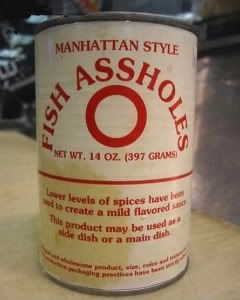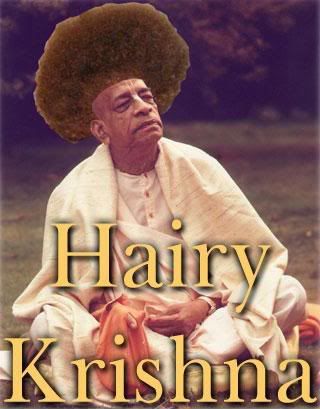First let me say that free will is a misconception best represented by a corny example: If I wish to grow wings and fly to the moon, then I "will" to do so. However this cannot happen, so I have no free "will." I rather have "free choice." Determinism, free will, and free choice are not opponents; they are rather functional with each other. (So in a sense I guess I am an Incompatiblist in the sense that the concepts do not oppose each other, I would not make me a compatiblist because this label would suggest that the concepts oppose each other but coexist, I simply think they are incompatible and therefore do not oppose). Better opposites would be determinism vs. chaos, or free will vs. forced will) Determinism makes free will impossible, however, for now, I am willing to say that determinism is NECESSARY for a type of illusionary free choice. In this world, it is obvious that everything is determined by antecedents. Prior conditions allow future conditions and they have their limits. Therefore in order to choose to take a drink of the water in front of me, it first has to be there. It was put there by a waitress. The waitress put it there because she is working and I requested it, and it just so happens that they offer it. I requested it because I was thirsty. On and on, and we both exist for this to happen. Each of our parents joined to reproduce and one sperm entered the egg. The sperm was of sufficient vitality to penetrate the egg. And so on, with hundreds of intermediates left out. It is obvious, nothing can happen without a happening before it. However the future is still undetermined because an event must happen before another event can (perhaps if someone was all-knowledgeable with an ultra-awareness then perhaps they could predict the future through what has happened now, but we humans obviously can't, this would be predeterminism or fatalism [everything is determined from an initial occurrence], don’t let this cloud the conception of determinism). So back to the point, if we assume determinism true, then we will say that it accounts for how I would be able to drink the glass of water, because everything has happened to allow it and I myself did not make it so. Furthermore, let’s imagine the opposite of determinism. It would suggest that things happen at random, at chaos. Therefore things would be popping in and out of existence all over the place in different forms at different times. Well that would surely make it impossible to choose to drink that glass of water. It would be impossible to choose anything because we would never be able to employ induction into our decisions. So we can see that determinism is necessary for free choice, however it is impossible for free will because we can only "will" to the limits of nature.
Perhaps my definition of determinism has run a bit astray. It would better be called antecedentism. But determinism can still fit my definition so I will use it further.
So it seems that free choice would, at least, "virtually" exist. I say "virtual", and I am willing to make the claim that "free choice" exists only in the illusion created by the "mysterious" mind. (When I say "mysterious" mind, I mean the electro-chemical origins of our thoughts altogether. The origin of thought is still unexplained. Therefore the origins of our thoughts are labeled "mysterious.") I am a physicalist so I believe that thought is explained by physical "facts." (Keep this in mind it will be incorporated later as a supporting factor.)
There are several points that are commonly noted as I'll try to cover briefly.
Oblivion
It seems right to say that human beings are creatures that live a sort of drifting existence. Our everyday life consists of varying degrees of awareness. One could say that we live in a moderate state of oblivion. This will limit out many of the choices that we think we are making. We usually simply drift through our day. We don't choose to step in every place we do based on premeditation. We simply let the world take us there and we try to make the most out of the results. So existentially, we live mostly without choice of action. The point here is that our choices are limited by this concept, and that is what I will be getting at. (I am narrowing down "choice" to an ultimate point, so follow me.)
Conditionalities
Imagine a rat maze. If the rat were born in this maze, this would be the only reality that it would know. Now imagine that this rat had the level of awareness that we have. It will not have free will for the obvious reasons previously stated. It might “will” to climb the wall, but it would be impossible by nature. So, it would imagine that it has free choice. It knows it can turn around, go forward, and turn a corner. But these are all conditionalities, because it cannot truly choose that which there is to be chosen. It will deliberate to decide what route to take to obtain the cheese. So, by deliberation, it will imagine future scenarios and place itself in the best. But if it isn't aware of all scenarios, is it truly choosing freely? It would seem to suggest that the path is directed, or rather, determined. Similarly, we may be in a parallel situation although on a larger scale. (Now I know that this doesn't account for the fact that the rat CAN still choose which conditionality nevertheless, but that is insignificant for the point this helps to make.) So the point here is that the extents of the choices we make are further limited to a place that I will soon explain.
The first two points are exterior "problems" against choice. They explain the impossibility of "free choice of action." Here I will present interior "problems" that explain the impossibility of "free choice of thought."
Physical Nature
It may be in the physical nature of things to not allow us to truly choose. If all of our "mental states" (thinking) are "brain states" then there would be physical explanation as to why we choose what we do based on the physical interaction of the electro-chemical makeup of our brain. So, when we think we are mentally deliberating so that we can make a choice, it may be that this "deliberation" is actually a "brain state" in which certain chemicals stimulate other chemicals to drive a result in our behavior. If this is the case then we are not truly choosing. Because we would actually have no control over the physical-physiological functions of our brain. This creates the "illusion in the mysterious mind" that I mentioned earlier. We are deluded to conclude that it is WE who choose. But if you are your brain, and your brain obeys physical laws, then you did not choose anything, the physical laws were simply in operation. So in a sense, the physical laws choose. So how are we able to think that we choose? Well if you are a monist and you believe that we (our inner "self") are our brains then you will also believe that we are simply aware of our physical brain states. Thus awareness becomes a sort of sixth sense, but still produced by the same physical nature of our brain matter. It is a cycle of cognitive activity that produces reactions to itself. If all this were found to be the case (which it might very well be) then we do not in fact choose. We rather act, but we do not act freely.
Essentially we would be puppeted or animated by physical nature. Or you could imagine us as a ball in a pinball machine with an automatic ball driver. If the ball were to come alive it would like to think it knew what it was doing. The mechanisms in the machine would be our mental processes, essentially the physical nature and overall the brain state. The ball would be what we illusively perceive as our "inner self."
Instincts & Influence
Additionally, this physical nature may produce the impulses and instincts that often cloud our choices, being a clear indication of the physical naturalness of our brain. These impulses and instincts are brain states that poison any free choice. Similarly, society creates anomalies in nature. Society creates artificial devices such as expectations and standards, to which we all react. It would seem that any choice we could have would be further inhibited by these delusions. This gets down to the bone of human decision. Because it would seem that societal standards would act as an artificial inhibitor of pure decision, because it would guide our decisions. So free choice becomes impossible in a different more realistic way.
An example of natural instinct would be hazardous emotions.
An example of unnatural influence would be, for instance, exemplified when a psychiatrist investigates a mental patients childhood or past to help determine what influenced their mind to become what it is. It is common for a psychiatrist to ask about childhood in order to explain our behaviors now. Life is full of infinite influences that our brain absorbs which essentially changes its capacity to do things. Often what we encounter creates neuroses that definitely cloud our choices because our brain slightly breaks down. Stress and trauma change how our brain functions, not only mentally but it changes the physical composition of it. All the experiences we have, all that we perceive accumulates within our brain and constantly compounds itself. The subconscious is constantly altered. We have no idea how much the subconscious effects our choices, the choices that we think we are making with a clear head. We love to think we are in control of our mind (and ultimately our brain).
So to where did I promise to limit free choice? It is limited to only mental chemical happenings. These mental chemical happenings create our actions, which we think are choices, and these mental chemical happenings also create the illusion by which we are deceived to think we make choices. If the physical nature of our brains are true, then free choice cannot actually exists in a functional sense.
Now keep in mind that this idea of free choice only exists within intelligent beings (beings that are aware that they exist and maintain to know). It is hardly arguable rather many lower species act on choice. It is instinct (pure brain states) that drives almost all creatures. This new sense (awareness) that we humans have developed allow us to transcend this mental suffocation of reality and begin to “think” we know what the world is about, and we very well may be on the right track. But we are mistaken when we begin to think we know about ourselves, and especially when we think we are in control of our brains. Because nature has designed us to perceive nature only and the exterior only (because that is all that is needed to survive), but it did not design us to effectively perceive ourselves. And this is why we have all of these certainty problems. We are realizing our delicate position in the universe and reality. Carl Sagan puts it greatly (I think I've mentioned before), "We are a way for the cosmos to know itself." Very true if you agree with the natural-physical theory.
But if quantum physics is true, then determinism faces a new dilemma


















